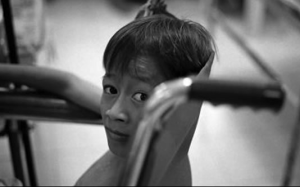
Deprecated: trim(): Passing null to parameter #1 ($string) of type string is deprecated in /home/aoiusa/public_html/wp-content/plugins/sexybookmarks/public.php on line 388
Deprecated: trim(): Passing null to parameter #1 ($string) of type string is deprecated in /home/aoiusa/public_html/wp-content/plugins/sexybookmarks/public.php on line 394
Deprecated: trim(): Passing null to parameter #1 ($string) of type string is deprecated in /home/aoiusa/public_html/wp-content/plugins/sexybookmarks/public.php on line 400
 Source: Touchstone Magazine – Mere Comments
Source: Touchstone Magazine – Mere Comments
Download the San Jose articles (.pdf).
This relates to a press conference yesterday. At the end you will find a link for the San Jose Articles. It is a strong and impressive statement of principle, with impressive signatories.
PRESS ADVISORY, October 5, 2011
UN Officials Wrong. No Right to Abortion.
New Expert Document Issued at United NationsWhere: UN Press Briefing Room, Dag Hammaskjold Auditorium
When: October 6, 2011, 11 a.m.
What: Launch of the San Jose Articles
Tomorrow morning [Oct. 6] at the UN press briefing room, internationally recognized scholar Professor Robert George of Princeton and former US Ambassador Grover Joseph Rees will challenge claims made by UN personnel and others that there exists an international right to abortion in international law.
As recently as a few weeks ago the UN Special Rapporteur on Health, the High Commissioner for Human Rights and the UN Secretary General have all said such a right exists. And, according to Human Rights Watch the CEDAW Committee has directed 93 countries to change their laws on abortion.
Professor George, Ambassador Rees and 30 other international experts are releasing the San Jose Articles to refute these claims and to assert the rights of the unborn child in international law.
Other signatories to the Articles include Professor John Finnis of Oxford, Professor John Haldane of the University of St. Andrews, Francisco Tatad, the former majority leader of the Philippine Senate, Javier Borrego, former Judge of the European Court of Human Rights, and Professor Carter Snead of UNESCO’s international committee on bioethics.
“The San Jose Articles were drafted by a large group of experts in law, medicine, and public policy. The Articles will support and assist those around the world who are coming under pressure from UN personnel and others who say falsely that governments are required by international law to repeal domestic laws protecting human beings in the embryonic and fetal stages of development against the violence of abortion.” said Professor George
Ambassador Grover Joseph Rees, former US Ambassador to East Timor, said, “When I was in Timor I witnessed first-hand a sustained effort by some international civil servants and representatives of foreign NGOs to bully a small developing country into repealing its pro-life laws. The problem is that people on the ground, even government officials, have little with which to refute the extravagant claim that abortion is an internationally recognized human right. The San Jose Articles are intended to help them fight back.”
To schedule an interview with Dr. George, Ambassador Rees or any of the San Jose Signatories, contact Austin Ruse, 202-393-7002, 202-531-3770 (cell).
The Articles and support material may be viewed at www.sanjosearticles.org

Signatories
Source: San Jose Articles
* Institutions named for identifications purposes only.
Lord David Alton, House of Lords, Great Britain
Carl Anderson, Supreme Knight, Knights of Columbus
Guiseppe Benagiano, Professor of Gynecology, Perinatology and Childcare – Università “la Sapienza”, Rome, former Secretary General – International Federation of Gynecology and Obstetrics (FIGO)
Hon. Javier Borrego, former Judge, European Court of Human Rights
Christine Boutin, former Cabinet Minister – Government of France, current president Christian Democratic Party
Benjamin Bull, Chief Counsel, Alliance Defense Fund
Hon. Martha De Casco, Member of Parliament, Honduras
Jakob Cornides, human rights lawyer
Professor John Finnis, Oxford University, University of Notre Dame
Professor Robert George, McCormick Professor of Jurisprudence, Princeton University, former member of the President’s Council on Bioethics
Professor John Haldane, Professor of Philosophy, University of St. Andrews
Patrick Kelly, Vice President for Public Policy, Knights of Columbus
Professor Elard Koch, Faculty of Medicine, University of Chile
Professor Santiago Legarre, Professor of Law, Pontificia Universidad Catolica Argentina
Leonard Leo, Former Delegate to the UN Human Rights Commission
Yuri Mantilla, Director, International Government Affairs, Focus on the Family
Cristobal Orrego, Professor of Jurisprudence, University of the Andes (Chile)
Gregor Puppinck, Executive Director, European Center for Law and Justice
Ambassador Grover Joseph Rees, former US Ambassador to East Timor, Special US Representative to the UN on social issues
Austin Ruse, President, C-FAM
William Saunders, Human Right Lawyer, Senior Vice President, Americans United for Life, former delegate to the UN General Assembly
Alan Sears, President, CEO and General Counsel, Alliance Defense Fund
Marie Smith, President, Parliamentary Network for Critical Issues
Professor Carter Snead, Member, International Bioethics Committee, UNESCO and former U.S. Permanent Observer to the Council of Europe’s Steering Committee on Bioethics, University of Notre Dame School of Law
Douglas Sylva, Delegate to the UN General Assembly
Hon. Francisco Tatad, former Majority Leader, Philippine Senate
Hon. Luca Volonte, Parliamentary Assembly of the Council of Europe, President of the European People’s Party (PACE)
Lord Nicholas Windsor, Member of the Royal Family of the United Kingdom
Susan Yoshihara, Director, International Organizations Research Group
Anna Zaborska, Member of the European Parliament, former Chair, Women’s Committee of the European Parliament

Touchstone Magazine has published a number of articles on the global push to use international treaties and regulations to force governments to go beyond their own national laws, or in some case overturn their own laws, among them:
Austin Ruse on Rulers Without Borders (a signatory)
Stephen Baskerville on Family Takeover
Allan Carlson on The UN: From Friend to Foe


